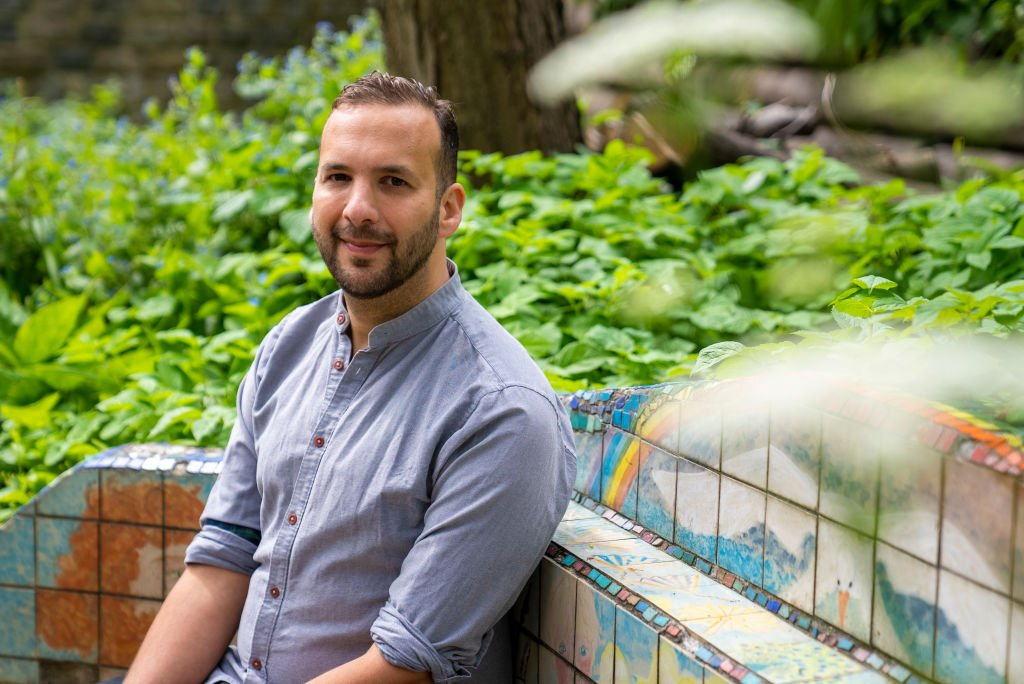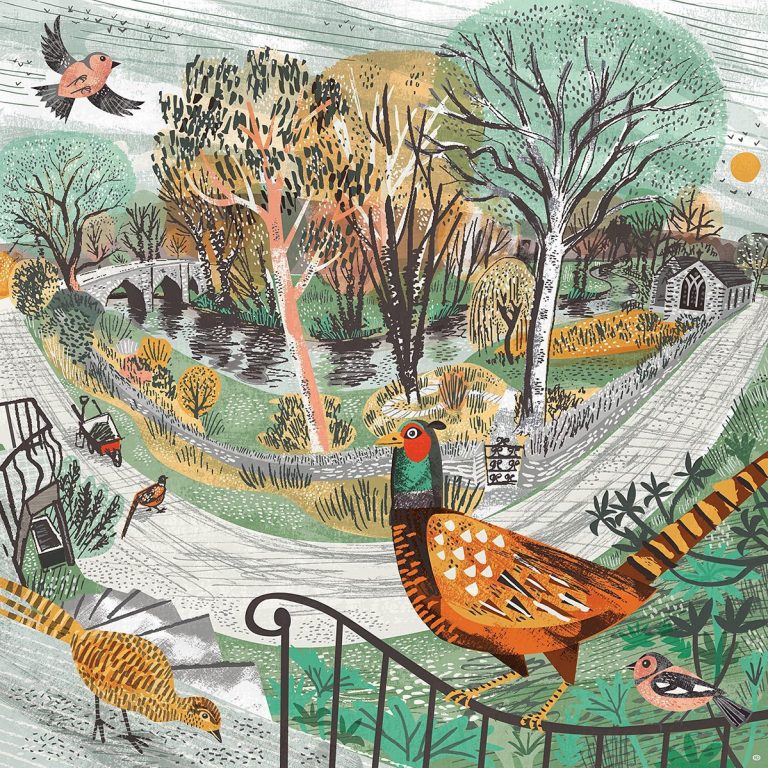
So let’s deal with the elephant in the room. Although the main political parties are all aghast at the huge fast rise of Reform UK (apart from new Green leader Zack Polanski who made a pledge not to mention Farage in his conference speech), none are listening to the public. Which is why a new party has filled in the vacuum.
To be fair, Reform does have some good policies like cutting bureaucracy, scrapping the BBC TV license and looking after pensioners. But when the party gets so much airtime, it’s important that their other policies are discussed, and that other parties also get their policies aired (and rightly scrutinised).
Sign the Balance the BBC petition, asking for our national broadcaster to give fair coverage. Lib Dems state that Reform UK only have a few of the 250 opposition MPs, yet Nigel Farage accounts for 60% of BBC website’s mentions of opposition leaders (when it’s not fawning over Trump – you’d think we live in the USA, every time you turn on the news).
Reform UK obviously has been instrumental in creating non-stop news coverage of ‘the boats crisis’. What the media (and politicians) won’t say is that the real experts have already come up with good solutions, which would keep people safe, stop illegal immigrants and keep legal safe migration.
In a nutshell, these are (alongside the obvious one of world peace so people would not have to flee for their lives):
- Refugee settlements (airlifts to pre-destined safe places – not Rwanda). Operation Pitting has helped Afghanistan refugees, using this process.
- Stricter employment laws (so people don’t travel in chilled vans to take up 30p an hour jobs in nail factories or car wash outlets – this can’t happen in France as employers would go to prison).
- Registering claims in France (rather than England). At present, asylum seekers register their claims in the UK on arrival. But as UK border officials already have a base in France, having this processed there would determine genuine asylum seekers. And stop illegal gangs from exploiting boat victims.
What’s concerning is that the kneejerk reactional politics of Reform UK has now led to divisions in a country that is known for its tolerance. But just burying your head in the sand is not going to do any good. People who work long hours are feeling angry when they see others claiming benefits or taking jobs or being put up in hotels, and it’s leading to terrifying consequences.
There ARE peaceful solutions. What concerns is that the general public are not looking at other policies of Reform UK, mainly the environmental ones that are quite scary: not just denying climate science, but also using land earmarked for rewilding (to save our endangered species) for industrial farming use.
This would not just kill off hedgehogs, water voles and dormice, but also lead to more natural disasters like floods, heatwave and wildfires.
Reform UK also wants to ‘protect country sports’ to ‘help the environment. Presumably this means hunting. Animal hunting also causes floods (by removing peat bogs for grouse shoot hunts) and also causes road accidents (pheasants are bred in factory farms, and have no road sense, causing huge amounts of car crashes).
Immigration Rules to Divide
Yes, something needs to be done about illegal immigration. And nobody is denying that. But rhetoric using offensive words like ‘aliens’ does nothing to help. And creates fear for everyone.
For instance, around one in six NHS staff are not British nationals (not just doctors and nurses, but often carers who visit homes of lonely vulnerable people to get them out of bed, change their incontinence pants, bathe them and provide emotional care). Saying they are not welcome, goes against everything ‘English’.
Many migrants do the jobs that some people in England won’t do: long hours on farms picking fruits and vegetables for our dinner plates. Many end up working in abattoirs, a job that most meat-eaters would never do.
If students are not coming in to study, universities lose income, and then (like in Cambridge) end up selling beautiful old buildings to raise cash. Which end up turning into vape shops or mobile phone shops, creating one of England’s most ‘cloned cities’.
Economics to Help the Wealthy
It’s been known for a long time now that ‘trickle-down economics’ (that gives tax breaks to the rich to ‘create jobs’) does not work – it just makes rich people richer, and poor people poorer. Economic growth just destroys the planet, with more progressive countries (like Costa Rica and Scandinavian countries) preferring a Happiness Index, which includes quality of life over money obsession.
More ‘take-home’ pay with tax cuts sounds great, and perhaps it is. But an obsession with economic growth and money (the policy of all the main parties bar Greens) is taking us down a slippery slope, while countries abroad (like Iceland) are going in the other more positive direction.
We already have a country increasingly owned by a few wealthy landowners (including the monarchy) and cuts to help the rich. Which leads to more chain stores, not independent and community shops, which is more of what we need.
A Basic Income would enable carers, part-time workers, single parents, disabled people, pensioners and volunteers to all live well, while still creating a ‘people’s army’ to become the great nation that Reform UK presumably wants us to be.
The NHS (and why it needs nature)

Beavers at risk from Reform UK (Holly Astle)
Reform UK wants more private money funding the NHS, though it does not wish to get rid of it, like some critics claim. But like the other parties, it never looks at WHY so many people need it.
Instead of obsessing over bed-blocking and pharmacy appointment, visionary politics is about walkable communities, more public parks and encouraging organic plant-based farming, this would massively reduce illness in the first place.
It’s well-known that nature is good for both physical and mental health. But Reform UK wants no action on climate science, no rewilding (which helps to prevent floods thanks to trees and beavers) and more oil/gas drilling and nuclear power (which would cause more pollution, more health issues and more destruction to our beautiful wild creatures and birds that live there. And likely more oil spills.
A good Reform policy is to scrap HS2, a huge vanity project that has cost billions, destroyed England’s second-oldest pear tree and will kill around 22,000 wildlife yearly once built, based on comparisons with high-speed rail abroad. We don’t need it in England (our geography is very different to where TGV operates). Barn Owl Trust says that HS2 is ‘a very expensive way of killing owls’.
Reform UK wants to fast-track ‘clean nuclear energy’
Nuclear energy is so antiquated and dangerous, that our own remaining plant at Cumbria is being decommissioned. New Zealand And Austria are totally nuclear-free, and we could be too. Again, it’s simple living and local economies with walkable communities that would mean less energy is needed.
You don’t just replace on fuel with another. That’s what ecologist Satish Kumar says is environmental stupidity. He quotes Einstein ‘We cannot solve our problems, using the same thinking that created them’.
The green movement’s fixation with technology, reveals that we are asking the wrong questions. The thought that we are carpeting the countryside with wind turbines and solar panels, just to power our phones is appalling. Paul Kingsnorth
Oil-Free Economics = good for England!
Reform UK promises to bring energy bills down by £500, by unlocking Britain’s vast oil and gas reserves. But all climate experts (including Greenpeace and Friends of the Earth) say we need to follow the advice of the Intergovernmental Panel on Climate Change that there must be no more fossil development, in order to limit global heating to 1.5 degrees.
We can easily reduce bills by £500 per person by providing free insulation for every older home (new homes are fine) which would also create skilled long-term jobs.
Rising energy prices are due to lifestyles based on cars (oil) that drive to 24-hour supermarkets (lit by oil) that use lorries (oil) to ferry food from central distribution houses (powered by oil), to sell pesticide foods (oil). Sold in plastic bags (oil).
Instead, we could have organic farmers’ markets that are walkable with low or no food miles (no oil needed). This is what Transition Towns do: create local food economies and community solar panels, so prices are not affected by who is invading who.
Could the Greens Overtake Reform?

It’s possible. The recent election of new Green Party leader Zack Polanski has steamrollered them into a position unthinkable a few years back. The party membership has grown from just under 60,000 to almost 90,000 within a year, and it’s gone from 2% polling to around 1 in 10 people now wishing to vote for them. With four MPs, things are looking up.
Interestingly, the new Green leader Zack Polanski says he completely understands why people vote Reform, and aims to sweep up some disillusioned voters at the next election. Two days after winning the election by a landslide, he visited Nigel Farage’s constituency in Clacton-on-Sea for the day, to hear their gripes (something no other party leaders in England have done so far).
He was surprised to find that not only did most local Farage supporters back a wealth tax, but also safe legal routes for ‘people on boats’, which is official Green party policy.
He also told them a bit about Reform UK’s support for ‘zero hour contracts with fire and rehire (which means dismissed staff are taken back with worse pay and conditions). One local who did not know this, says he was aghast, believing that Reform policy was supposed to be about ‘standing up for British people’.
This is what happens when the mass media never challenges policies of any political party.
Politics in the UK does now seem to be ‘having a moment’, after years of just two main parties. Lib Dems are pretty popular, and the Conservatives look like they are finished (especially now that there are plans to rip up climate policies that former leader Theresa May is absolutely dismayed at).
Current party membership levels are surprising, from a few years back. In October 2025, they look like this:
- Labour 309,000
- Reform UK 250,000
- Conservative 123,000
- Greens 88,000
- Lib Dems 60,000
Did you know that Greens have more members than Lib Dems? Nor did we. So if you combine them, that’s more than the Conservative membership. Could we then be looking at hung parliaments of left and centre parties, at the next election?
A YouGov study found 25% of under-30s said they would never vote Labour. In the year since the general election, Labour has gone from dominating the youth vote, to being a three-way race with Greens and Lib Dems. Reform (despite the headlines) isn’t even close. University of Exeter
Ipsos is the website where you can find the latest opinion polls. And if you usually rely on the BBC or other news for information, this makes interesting reading, as it does not pan out with what you’d think. In September 2025, the polls show that:
- 82% of people are not happy with the Labour government
- 79% of people are not happy with Sir Keir Starmer’s leadership
- 61% of people are not happy with Kemi Badenoch’s leadership.
- But 53% of people are also not really happy at the Reform UK agenda.
- Ed Davey scores a bit better (only a third not happy!)
- No mention yet of Zach Polanski (new Green leader)
The voting intentions look like this in Sep 2025:
- Reform 34%
- Labour 22%
- Conservative 14%
- Greens 12% (just behind!)
- Lib Dems 12%
- Other 6%
So again, this pans out with party membership. Together, Greens and Lib Dems would get 24% of the vote – that’s way more than the Conservatives and combined, more than Labour. There is a real change happening here, so let’s keep hoping for something good to happen soon!

A man was on his first day out of prison, to work in a bakery. He arrived, terrified of his new life. He was a little late, because it had been years since he’d used public transport, and there was a cup of tea waiting for him. A simple act of kindness, from one stranger to another.
That’s what this country is, when it’s at its best. It’s thoughtful, it’s considerate and it’s kind. Hateful, divisive politics is on the ballot paper. We can and must reject that. Let’s instead look after each other. Let’s go! Zack Polanski, Green Party leader






